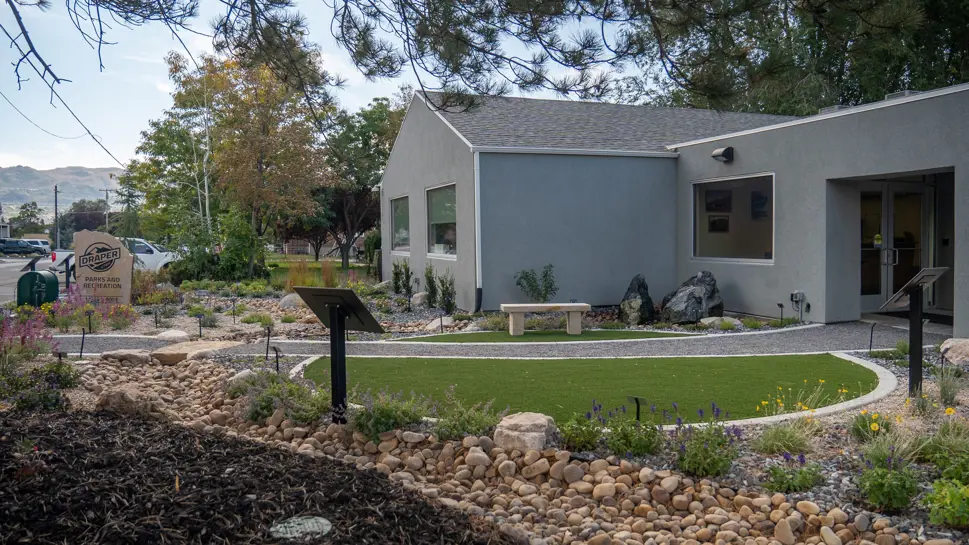One of the hallmarks of a conservation garden is its support for biodiversity. A variety of plants, including trees, shrubs, and wildflowers, provide habitats for insects, birds, and small mammals. These spaces become critical oases for local wildlife, offer refuge and sustenance in an increasingly urbanized world.
Conservation Garden

Draper Parks and Recreation Conservation Garden
A carefully designed and cultivated outdoor space that prioritizes environmental sustainability and the preservation of local ecosystems. These gardens are created with the intention of supporting biodiversity, conserving water, and reducing the need for chemical inputs.
A conservation garden is a sanctuary of natural beauty and ecological harmony. It is a purposefully cultivated space that transcends mere aesthetics, embodying the principles of environmental stewardship and sustainability.
We welcome the public to visit Draper City's Conservation Garden.
These gardens can be community hubs for environmental education and action. They may host workshops, volunteer events, and community gatherings that promote conservation awareness and involvement.
Conservation gardens often serve as living classrooms. They are designed to educate and inspire visitors about the importance of preserving native ecosystems and the benefits of sustainable gardening practices. Interpretive signage and guided tours may be available to help people better understand the ecological significance of the garden.
At the heart of a conservation garden are native plants. These flora are indigenous to the region, ensuring they are well-suited to local soil and climate conditions. They require minimal maintenance, reducing the need for excessive water, fertilizer, and pesticides. Native plants all support local wildlife, providing essential habitats and food sources.
Unlike traditional gardens that may rely on pesticides, conservation gardens prioritize natural pest control. Beneficial insects, birds, and amphibians attracted to the garden help maintain a balanced ecosystem by preying on harmful pests. The absence of synthetic chemicals ensures a safe and healthy environment for humans, pets, and wildlife.
These gardens offer a tranquil retreat from the fast-paced world. Visitors can unwind in serene environment that celebrates the wonders of nature. Well-placed benches, walking paths, and quiet corners invite contemplation and reflection.
Conservation gardens are designed to be water-wise. Drought-tolerant native plants are strategically placed to reduce water consumption. Techniques like mulching and rain gardens capture and filter rainwater, replenishing the local aquifer while preventing soil erosion. This approach helps mitigate the impact of drought and supports a sustainable water cycle.
